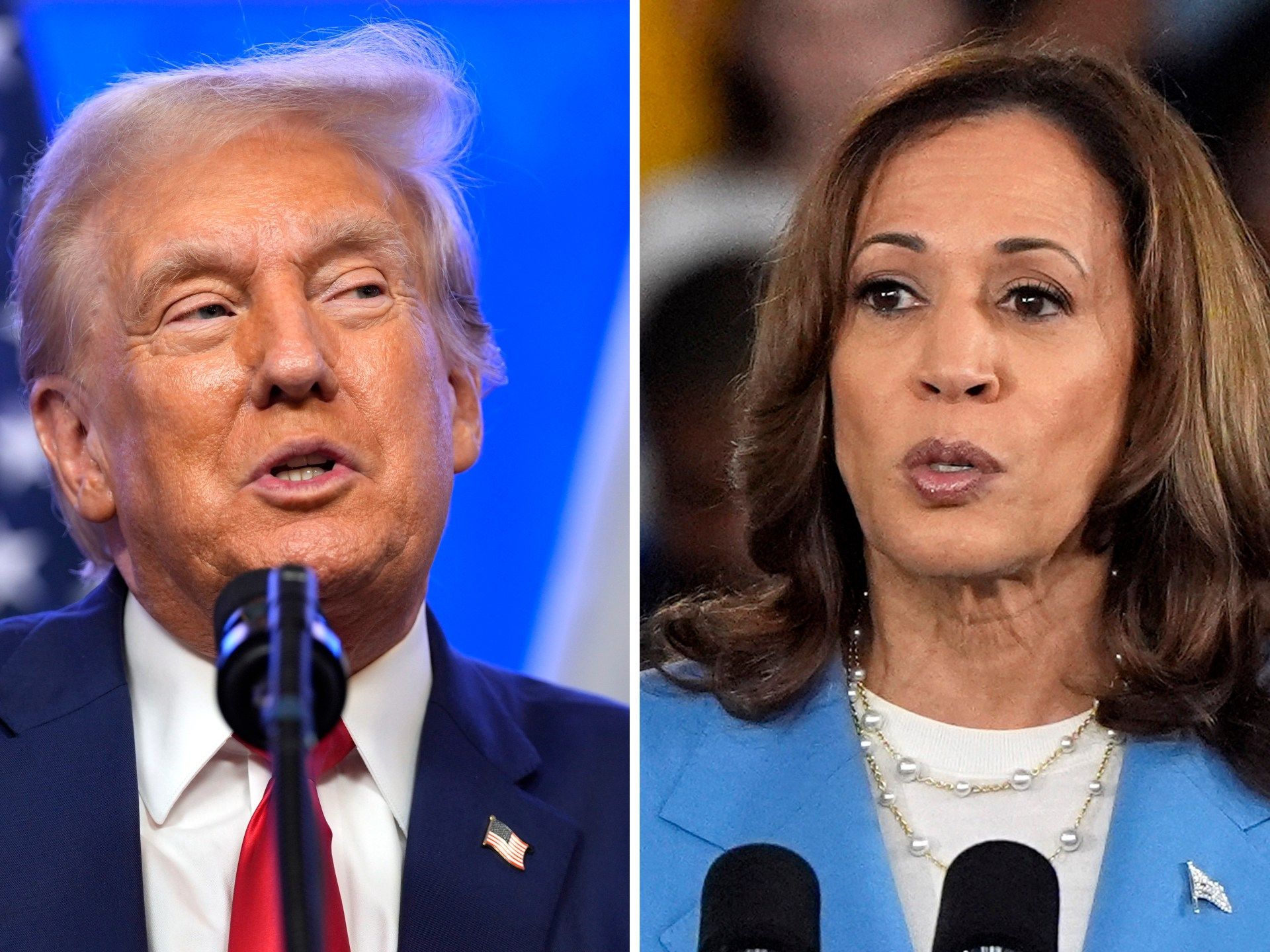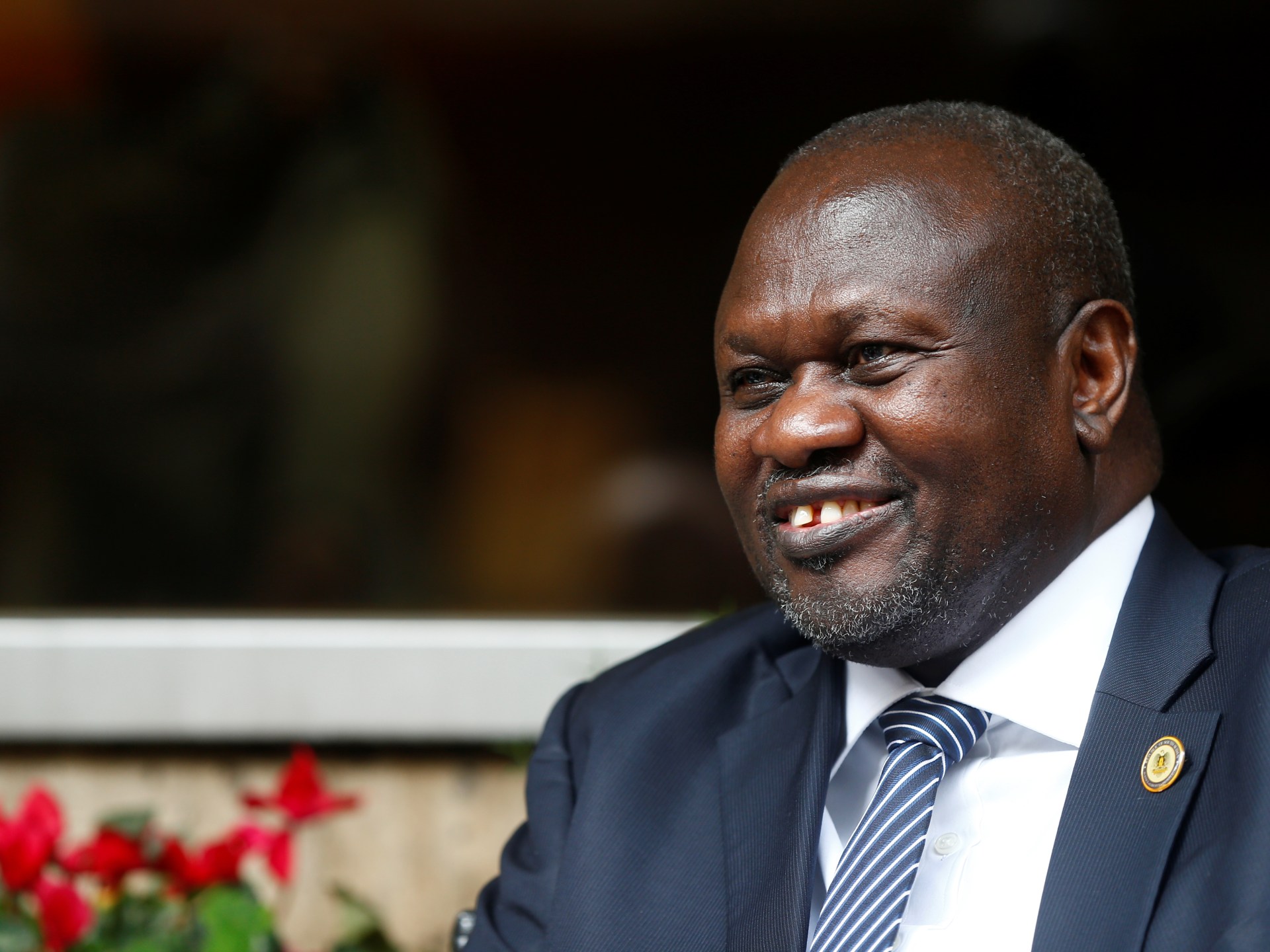Washington, DC – On one side of the stage will be the prosecutor, seeking to dismiss her opponent as a danger to democracy and a vestige of the past.
And on the other side will be the real estate magnate, attacking his rival as an ultra-liberal politician who will regulate the economy until it stagnates.
Tuesday's presidential debate will be the first chance for Vice President Kamala Harris and former President Donald Trump to meet face-to-face as they discuss the future of the United States.
And both candidates have been sharpening their attacks and plotting a strategy to gain the upper hand in their closely contested race.
The televised debate, hosted by ABC News, may well prove to be the only chance for Harris and Trump to face off in person before the Nov. 5 election.
And that means the stakes are high. Aaron Kall, a professor at the University of Michigan who studies presidential debates, warns against underestimating their importance.
“They can't win an election, but they can certainly lose one,” Kall said.
The shadow of the June debate
The showdown in Philadelphia, Pennsylvania, is the second presidential debate of this election cycle.
But experts said the losses from the first debate should serve as a warning to those involved this time around.
The first debate took place on June 27 and was the lightning rod that brought down President Joe Biden's re-election campaign.
Biden, the Democratic nominee at the time, faltered as he faced Trump on the debate stage, trailing off mid-sentence and failing to articulate the basic points of the conversation.
His poor performances have raised concerns about the 81-year-old's age and ability.
Less than a month later, Biden dropped out of the race and Harris soon replaced him as the Democratic nominee.
But experts say the events of the June debate will be highly significant for Harris and her Republican rival Trump, who are both working out their strategies for Tuesday. Some predict that Biden's failure may even draw more attention to Tuesday's debate.
“You can say in one sentence that the Biden-Trump debate was the most consequential presidential debate in American history,” Barbara Perry, a presidential historian at the University of Virginia, told Al Jazeera. “It shows that the stakes are real and high.”
Kall, for his part, pointed to the June debate as evidence that one high-profile mistake can cost a candidate the election.
“In a 90-minute debate, you can make a mistake or a gaffe or do something that will mark you for the future, like Biden not having the stamina to last another four years,” he said.
Harris's strategy
Both Harris and Trump's campaigns have been tight-lipped about the tactics they plan to use for Tuesday's debate. After all, airing their strategies in public could undermine their effectiveness.
But Harris's team appears to be hoping to give Trump a clue to crash his own plane.
His campaign unsuccessfully asked for Trump's microphone to be unmuted between questions, allowing him to speak out of turn.
That was a shift from what the Biden campaign had pushed for in June. The Biden team hoped a muted microphone would rein in Trump, who was prone to outbursts, particularly without an audience present.
Instead, Kall said, “it went wrong.” He believes the silence gave Trump a more serious appearance, which emphasized Biden’s stumbles.
Harris's team seemed to be hoping for a repeat of an earlier debate between Trump and Biden, in Cleveland in 2020, when Trump made numerous interjections that were interpreted as chaotic. In turn, Biden emerged victorious.
However, the Harris campaign's request to keep Trump's microphone unmuted was ultimately denied.
Matthew Levendusky, a political science professor at the University of Pennsylvania, said another priority for Harris will be to use the debate stage to establish herself with the American public.
Harris launched her presidential campaign just seven weeks ago, so she has been in the national spotlight for much less time than Trump.
But critics point to his performances in previous debates as a positive sign ahead of Tuesday's event.
During the 2020 election cycle, for example, Harris participated in the Democratic presidential primary debates and generated buzz for landing successful blows at her future boss Biden.
He also stood out in a politically charged vice presidential debate against Mike Pence during the general election that same year.
Harris, a former San Francisco district attorney and California attorney general, has a prosecutorial style, something she exercised during her time in the Senate. Her tough questions during Senate committee hearings earned her national recognition.
Levendusky said Harris will try to reprise that role in Tuesday’s debate. “She will look to be tough and challenge Trump and show that she can refute him,” she told Al Jazeera.
“But of course the danger for her is that as a woman of color, she is in a difficult position because of racial and gender stereotypes about appropriate behavior,” Levendusky added. “So far, she seems to be walking that tightrope very effectively, and this is her chance to highlight those skills on an even bigger stage.”
Trump's 'sixth sense'
Trump, meanwhile, will be making his seventh appearance in a general election debate, more than any other candidate in US history.
According to Perry, he remains driven by one deep-rooted factor: He seems immune to the standards applied to other candidates and their behavior. His base will support him no matter what.
“The rules that were in place now don’t matter to him,” Perry said. “He can’t be cornered or countered, because the people who are forced to vote for him don’t care.”
But experts like Perry warn that Trump needs to broaden his appeal beyond his base to win the November election.
Perry noted that Trump won the presidency in 2016 thanks to the Electoral College, a weighted voting system in which “electors” are assigned based on the results of state elections. The candidate who gets the most votes in a given state typically wins all of that state’s electors.
However, in both 2016 and 2020, Trump lost the national popular vote, garnering fewer votes overall than his Democratic rivals in each case.
That means Trump still needs to attract voters outside his core base to secure victory, Perry said.
On the debate stage, Trump, a former reality TV star, stands out as a “moving target,” Kall said. The Republican has a knack for beating around the bush and launching nonsensical attacks that can confuse his opponents.
Kall noted that Trump's unpredictable performances in the 2016 debates proved to be the fuel for his meteoric rise in politics.
And Trump continues to show uncanny instincts when it comes to seizing politically significant, photo-ready moments, as evidenced by his defiant raised fist after an assassination attempt in July, Kall said.
“He made sure that the image that was captured was the most politically advantageous for him,” Kall explained. “The same thing happens in debates. He has a very keen sixth sense that allows him to know when there is a key exchange or moment in a debate that everyone is going to talk about and that could go viral.”
Differences in preparation
The debate buildup has also offered an indication of how each candidate may react on the debate stage.
Their preparation methods reveal a contrast in style. Trump has continued to eschew traditional debate preparation for more informal policy discussions with aides, according to media reports.
But Harris has settled in Pennsylvania to practice with mock debates, using a Trump stand-in, just as Biden has done in the past.
Trump, however, reportedly turned to Tulsi Gabbard, a former Democratic congresswoman, to help him with debate preparation. Critics say Gabbard showed a unique ability to shake up Harris on the debate stage during the 2020 Democratic primaries.
At 78, Trump's advanced age could also be a liability when he faces Harris, 59. It will be the first time in years that he has publicly faced a considerably younger opponent in a debate.
Levendusky noted that Trump's tempestuous, improvisational style has been a double-edged sword: one that could alienate viewers as much as attract them.
“Trump wants to do something to alter the narrative and regain control of the news cycle,” Levendusky said. “But he risks falling back into his traditional pattern, and that reminds voters of what they didn’t like about him.”
'Stereotypical tropes'
Experts who spoke to Al Jazeera also warned that Trump's approach to his rival's gender and race could also prove divisive during the debate.
Harris is only the second woman to lead a major party's presidential ticket after Democrat Hillary Clinton faced Trump in 2016. She is also the first Black and South Asian woman to lead the party.
On the debate stage, Harris will address societal preconceptions that Trump doesn't have to deal with, according to Kelly Dittmar, research director of the Center for American Women and Politics at Rutgers University-Camden.
“I'm sure Harris is receiving advice on issues like tone and how to show emotion and reaction to Trump's kinds of provocations,” Dittmar told Al Jazeera.
“Because women are more often the target of criticism for their excessive emotionality. There are stereotypes of angry black women that she is surely aware of, and you can see evidence of that in the way she very calmly, often in these kinds of situations, responds.”
Trump, meanwhile, has resorted to sexist attacks throughout his political career, repeatedly labeling Clinton a “nasty woman” and appearing behind her during a debate in 2016.
He also infamously said that Fox News moderator Megyn Kelly had “blood coming out of her face” after a Republican primary debate.
Dittmar noted that Trump has continued that line of attack with Harris, using gender-coded insults. For example, he has called Harris “incompetent,” mocked her laugh and made comments about her physical appearance.
If he continues to do so on the debate stage, it will be an indicator of which audience he is trying to reach.
“Going for hypermasculinity and the more aggressive approach he has taken in previous debates will be more acceptable to his current base,” Dittmar said.
“On the other hand, if he is trying to attract and win back the support of voters who are, quote, in the middle, we will see him strategically try to emphasize political differences over that kind of personal rhetoric.”
“It's not clear whether he'll be able to keep it up,” Dittmar added.
The challenge for Harris, Dittmar said, is to remain unfazed by Trump's comments. But he believes Harris has already demonstrated her strong stage presence during her time as prosecutor and in the Senate.
Maintaining that same calm during the debate could boost Harris' chances in the November race.
“People tend to look for leaders who are not intimidated by these high-pressure moments,” Dittmar said. “It’s something we already know Harris excels at, and that can translate into a perception that she’s a president.”












